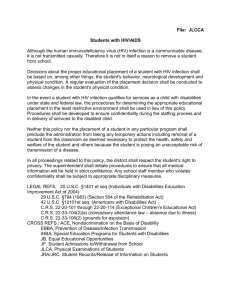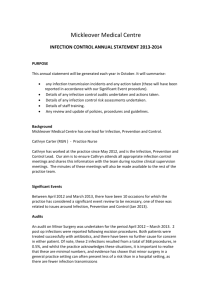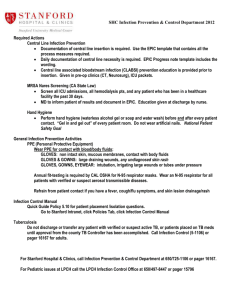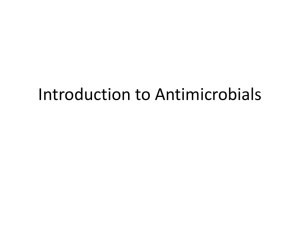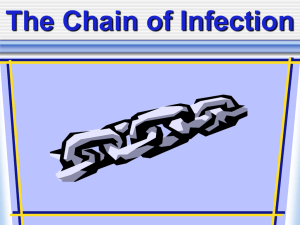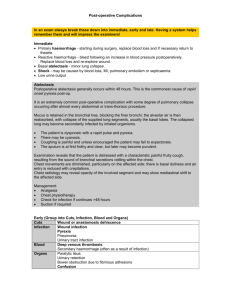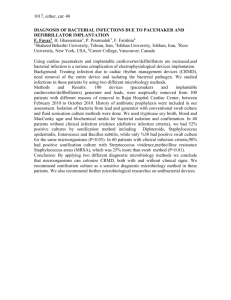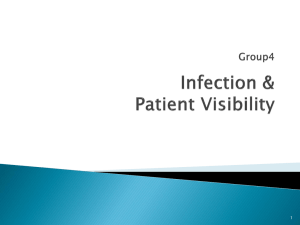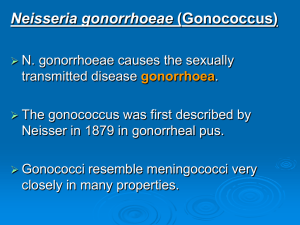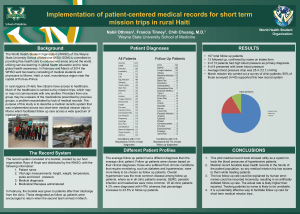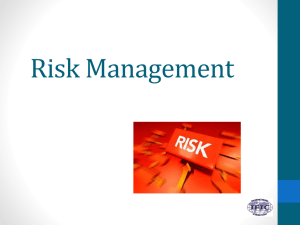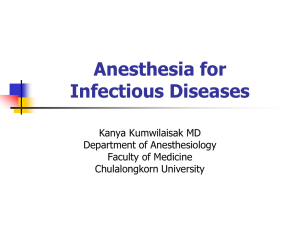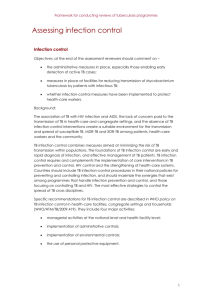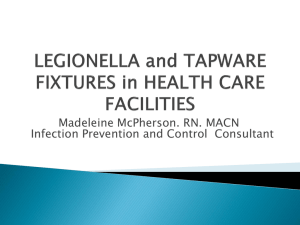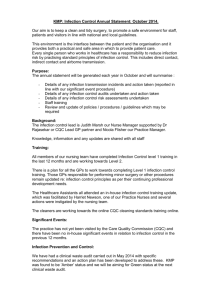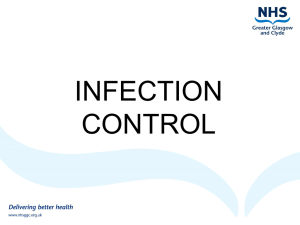Introduction - Stop TB Partnership
advertisement
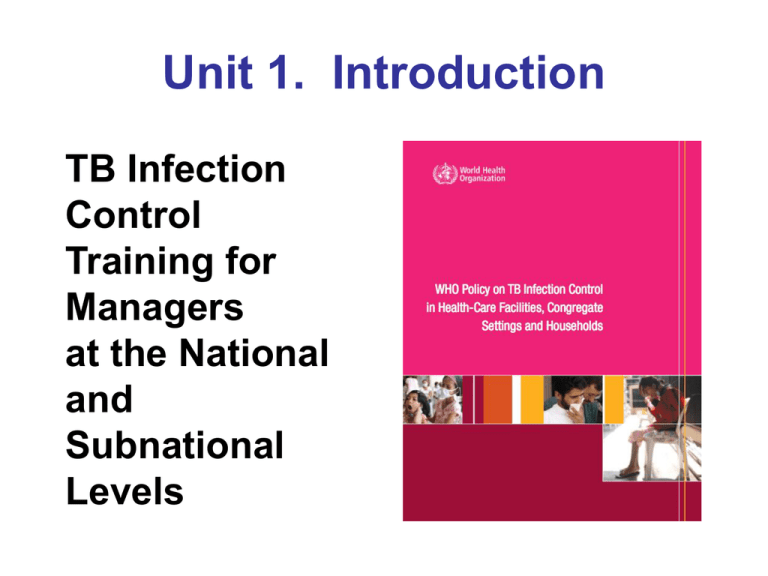
Unit 1. Introduction TB Infection Control Training for Managers at the National and Subnational Levels Outline • • • • Review goals and objectives of the course Introduce participants and facilitators Go over course methods and materials Discuss course evaluation process 2 The situation • Transmission of TB in health care and congregate settings is a major challenge • Financial resources have been made available, but there are insufficient human resources for infection control. 3 Preventing TB transmission is part of: • the Stop TB Strategy • the WHO three I’s for collaborative TB/HIV activities (Intensified case finding, Isoniazid preventive therapy, Infection control) • World Health Assembly resolution on MDR, 2009 • International Standards for TB Care 4 Stop TB Strategy 1. Pursue high-quality DOTS expansion 2. Address TB/HIV, MDR-TB, needs of poor and vulnerable populations 3. Contribute to health system strengthening • Strengthen infection control in health services, other congregate settings, and households 4. Engage all care providers 5. Empower people with TB and communities 6. Enable and promote research 5 6 Goal of this course To further develop the skills required to: • organize • implement • monitor and evaluate TB infection control at the national and sub-national levels, within the framework of the Stop TB Strategy 7 Course objectives By the end of the course, participants will understand: • the recommended set of measures for TB infection control • their roles and responsibilities as managers to ensure TB infection control • how to prioritize interventions for health-care facilities • how to set targets for TB infection control 8 WHO TB IC Targets By 2012, 50% of countries should have: • Developed a national TB IC plan • Set up national surveillance for TB disease among health workers • Assessed major health-care facilities and congregate settings • Reported on the implementation of IC measures By 2013: all countries 9 What this course does not teach • How to conduct a thorough assessment of health care facilities with regards to TB IC • Professional skills needed to advise on standards for facility renovation and upgrade • How to organize a TB occupational health program • Specific measures to prevent TB transmission in households or congregate settings 10 How do we accomplish these goals and objectives? - Lectures - Discussions - Site visits - Practical demonstrations - Problem solving - Exercises 11 Focus on Who? • Patients, health workers and visitors at risk Where? • In health care facilities and congregate settings, especially where there is: – a high prevalence of HIV – a high level of multidrug resistant TB 12 Rights • Of the community to attend a clinic or hospital without fear of contracting TB • Of health care workers to be in a safe working environment 13 Course outline (1) 1. 2. 3. 4. 5. 6. 7. Introduction TB epidemiology Infection control Managerial activities Administrative controls Environmental controls Respiratory protection 14 Course outline (2) 8. Advocacy, communication, and social mobilization; Costing 9. Human resources development 10. Monitoring and evaluation 11. Laboratory safety 15 Course evaluation • Participants will evaluate the course by completing a course evaluation form for each Unit • Facilitators will evaluate participants’ infection control action plans and exercises 16 Course evaluation form 1. Please rate the quality of the training module by ticking the appropriate answer and adding any narrative comments: Excellent Good Fair Poor Overall course Matching your needs as a manager Presentations Exercises and field visits Training materials Accommodations 17 Introduction of Participants and Facilitators 18

